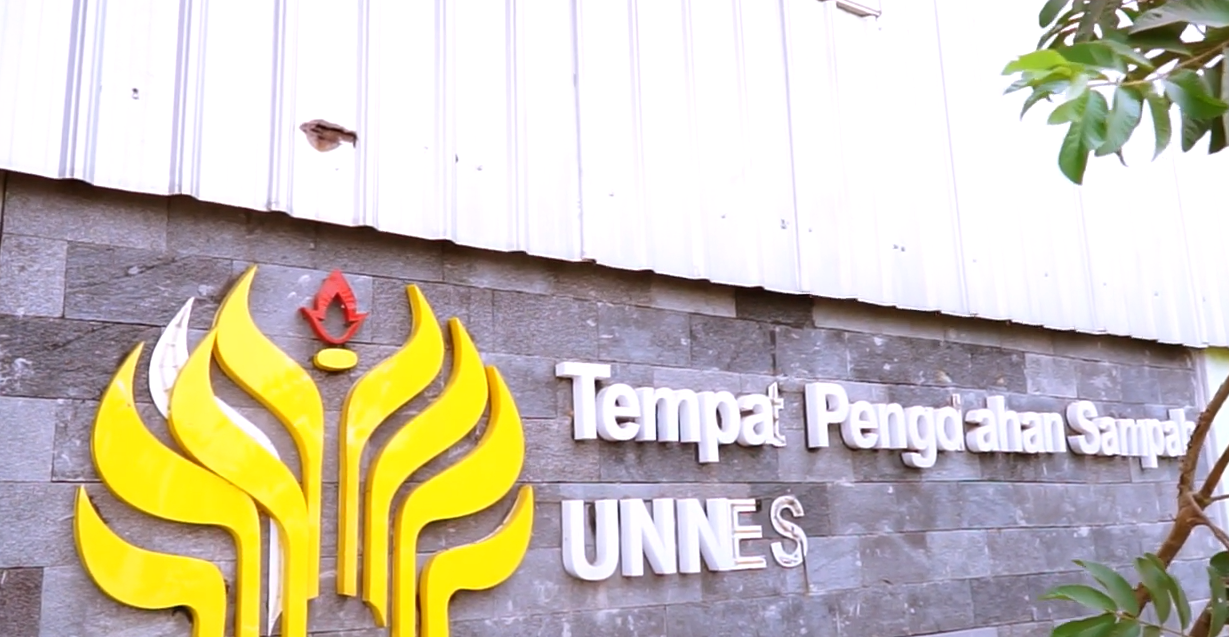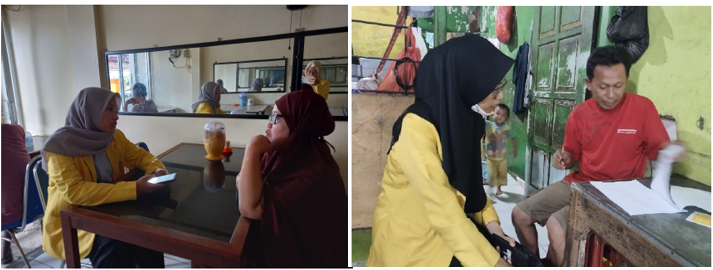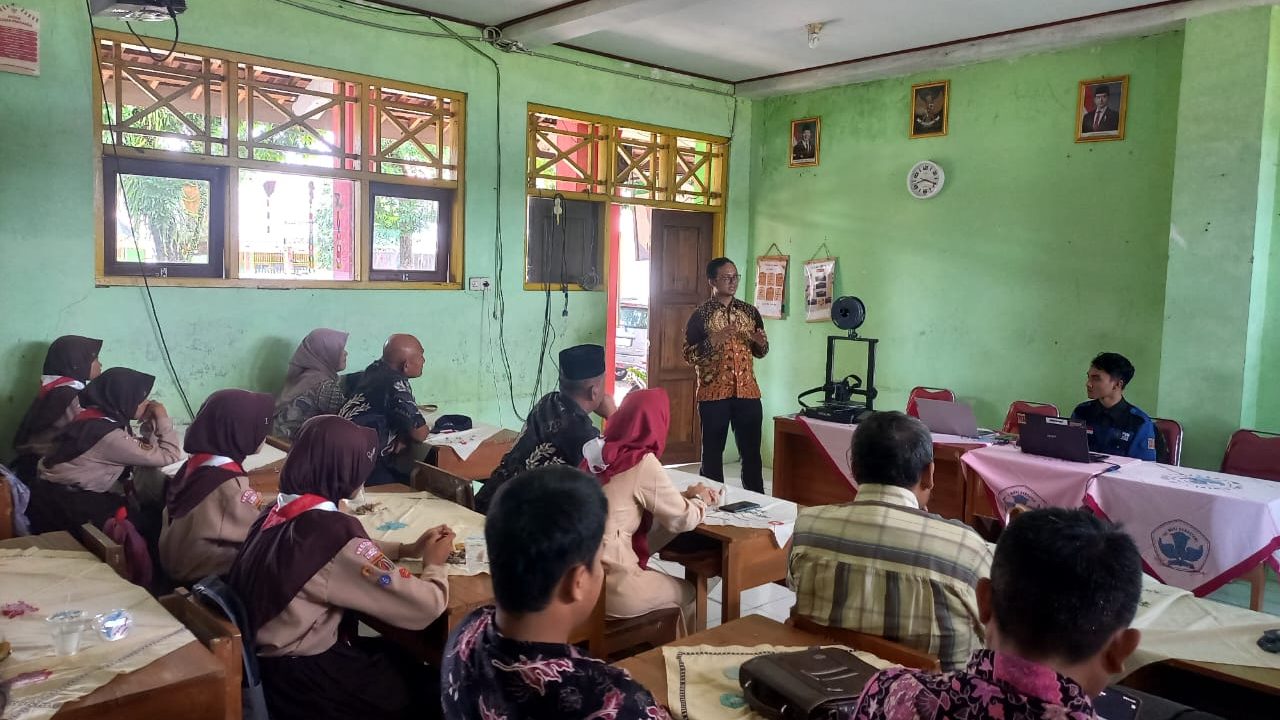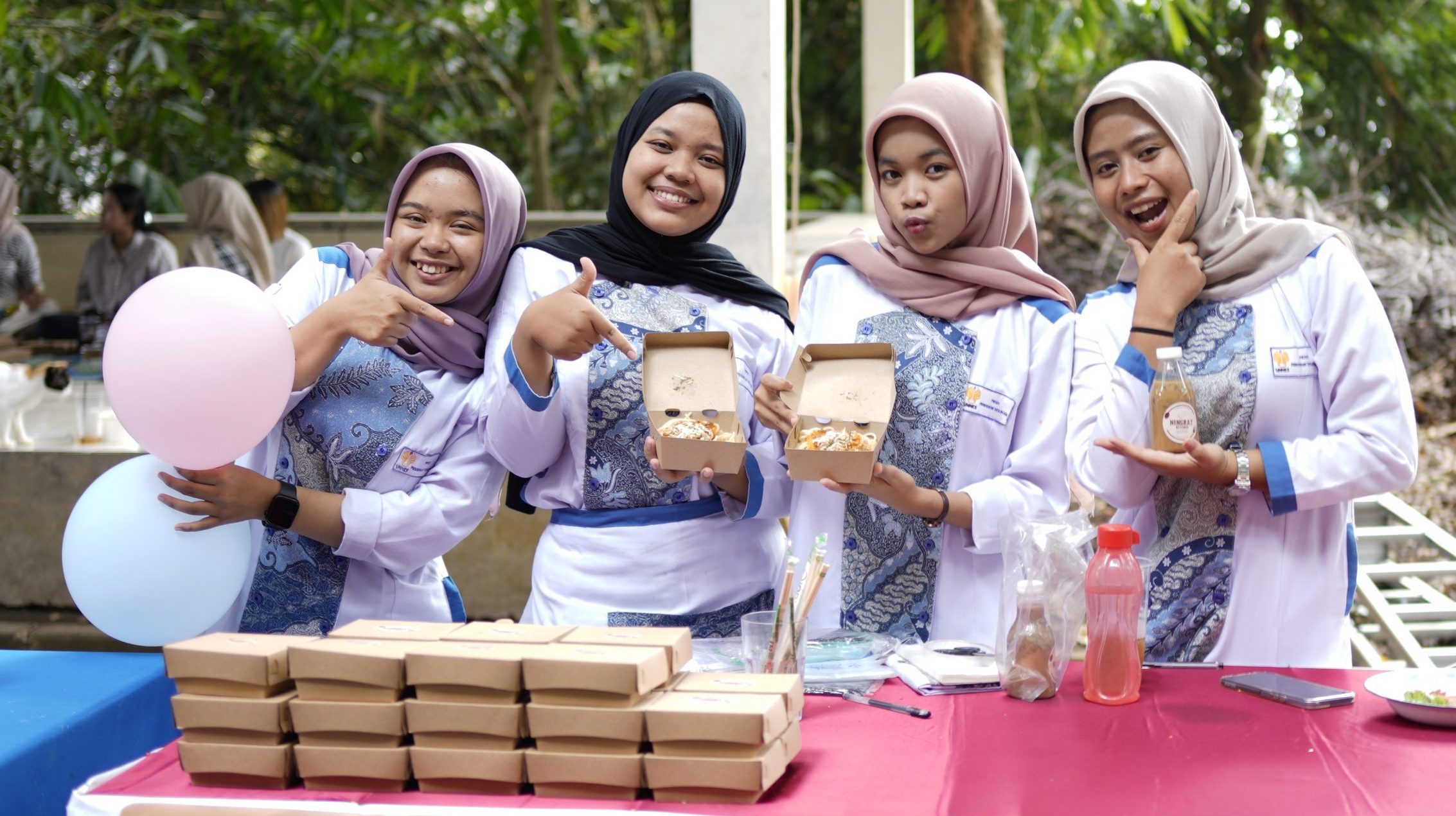As part of its commitment to environmental sustainability, Universitas Negeri Semarang (UNNES) has implemented innovative approaches to organic waste management. With a processing capacity of up to 20 tons per day, UNNES successfully converts organic waste into economically valuable products through its Integrated Waste Processing Facility (TPST), managed by the UNNES Conservation Subdirectorate, located in Gang Ki Ageng Gribik, Sekaran, Gunungpati.
Annually, UNNES generates approximately 4,586.576 tons of organic waste, primarily consisting of 4,547.6 tons of leaf waste, followed by 14.976 tons of food waste, and other organic materials such as wood and tree branches (24 tons).
In its waste management practices, UNNES applies two key methods: downcycling (transforming organic waste into new products with lower value and quality) and upcycling (repurposing waste into products with higher value).
A prime example of upcycling is the conversion of leaf waste, which contributes approximately 12 tons daily, into high-quality compost. This compost supports reforestation programs at UNNES and surrounding areas. In addition to its use in reforestation, the compost is also sold to generate economic benefits.
Food waste is processed into feed for the cultivation of maggots (Black Soldier Fly larvae), which not only assists in reducing organic waste but also has significant commercial value as animal feed. Although the current supply of food waste is limited, community support and participation play an essential role in enhancing food waste management through maggot farming.
Furthermore, organic materials such as tree branches and wood are processed using incinerators, making waste management more efficient.
Through these continued innovations, UNNES seeks to further solidify its role as a conservation university and serve as an inspiration for others in promoting environmental sustainability.
source




